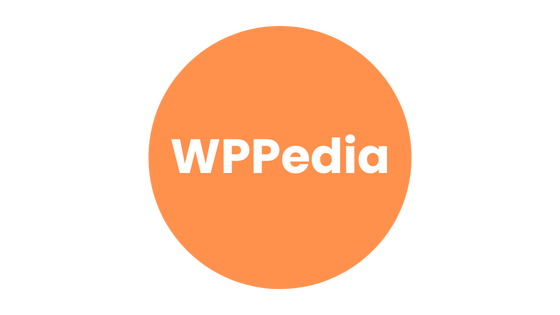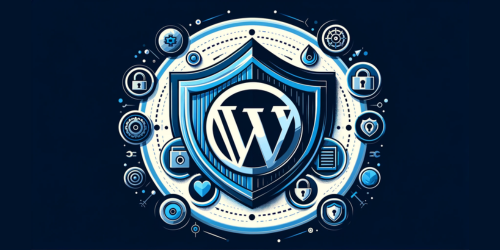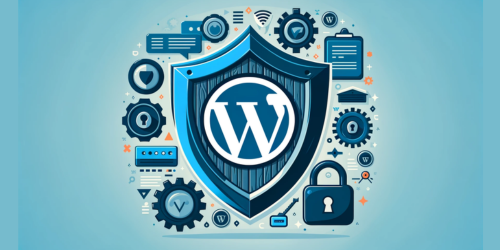Wondering which blogging platform could be the best choice for your new blog? It’s pretty confusing to choose the best platform out of so many different options.
Let’s break this question down into straightforward steps.
What is a Blogging Platform?
A blogging platform is a kind of online application/website that simplifies the process of blog creation for you.
There are many Content management systems available each carrying its pros and cons.
Although you have to choose the one that best sets up your goals.
A warming Intro:
Creating a website on your own could be both exciting and challenging at first.
You don’t know the future of your site. Whether your website will receive hundreds of visitors and generate hundreds of dollars every month. You can’t answer any of those questions without taking a chance.
That’s why here we’ll be comparing the 15 best blogging platforms for beginners.
Choosing the best blogging platform-What to look for?
Remember, not all blogging platforms are made equally. Each of them has its pros and cons.
You need to choose the best blogging platform depending on your needs. It might be.
- Create a Personal blog.
- Make money blogging.
- Write a Journal.
- Or just for fun/hobby.
The point is whatever your reasons are you need to set a Goal. And then with that conclusive mindset, choose a blogging platform best for your Goal.
Note: we’re going to show you everything about the 15 best platforms for blogging. With continuous reading, choose the one that best describes your scenario.
Few of the things you need to remember:
Ease-of-use:
Whether it’s a Video Game, Sports car, we all love the ease of use. Then why not put that same rule in our online journey.
When choosing a platform, look for their trial. And within that trial, you’re gonna come across many difficulties (if you’re a beginner). You aim to see how well you understand that platform. Of course, you’re not gonna become a master of any of these platforms overnight (Remember the aim: ease of use).
And pick the one that scored well.
Features:
We always look for features whenever we’re gonna try something new. When choosing the best platform for your blogging, look for features. See, how well they are doing in the market (which we’ll tell you in a sec).
Look at all the features and see which one is scoring great in this test.
Anyway enough said let’s jump into my favorite part, Comparing.
1 WordPress.org (Recommended):
WordPress, AKA the self-hosted WordPress is by far the most popular blogging platform on Earth.
More than 27% of the websites, including some of the most important sites like CNN, Techcrunch, Playstation, etc., are using WordPress.
I think WordPress is the best website builder for blog, due to its functionality and the best website builder tools available for it.
It’s because WordPress offers so many features for all kinds of websites. It has an official directory of more than 4400 themes all free to choose from. Hundreds of free and premium plugins to choose from. Massive freedom for everything.
Here are 50 Top Selling WordPress themes of all time.
You can create a personal site, blog, online shop, whatever it’s that easy. While giving you the freedom and massive different features, the WordPress code is SEO-friendly. And we know SEO is super crucial, to rank any website.
You can get a Free $100 Credit on the Digital Ocean cloud platform.
While WordPress.org is itself free, but you need a Domain and Hosting to install it. You can get a considerable discount, on Domain name and Hosting, Here.
With all said, let’s see the Pros and Cons.
Pros:
- WordPress is super easy to manage.
- You can customize the website any way you want.
- There are hundreds of plugins to boost your website’s functionality.
Cons:
- Theirs’s a bit of a learning curve.
- While it’s easy to manage, you need to do all the security and backup yourself.
Calculating the Prices:
All you need is a Domain name and Hosting to install WordPress on your Hosting. A Domain name typically costs around $14/year and a standard hosting $7.95/month. Combining the cost of Domain and Hosting it’s about $7.95(Hosting)*12+$14(Domain)=$109.4 (Usually).
Don’t worry, I always have a gift for my newbie friends using our discount you can get a free $100 credit 60 days.
Calculating the cost after applying discounts, it’s around $48/Year.
2- Constant Contact Website Builder:
Constant Contact is a premium website builder powered by AI. It helps you to create a Website in a matter of clicks.
With Constant Contact, you can sync your Facebook page and then import the accessible content in your blog from your FB page. Constant Contact will show some templates to choose from during this process.
You can even build a blog without syncing with a Facebook page. Constant Contact is an excellent choice if you’re looking for a premium website builder to make a blog.
Now let’s cover the Pros and Cons.
Pros:
- Building a blog is super easy.
- They also offer a free trial.
- All the necessary features are included.
Cons:
- You can’t connect a domain name in a free trial, you need to upgrade to do that.
- They won’t allow third-party extensions.
- Not a feature-rich platform.
Calculating the price:
Constant Contact does come with a free plan. But you need to upgrade it to connect a domain, get support, get more features. Their starter plan costs $10/month.
Get started with Constant-Contact >
3- WordPress.com:
 Getting confused?. Let me tell you WordPress.org is open-source software. While WordPress.com is free also with a paid plan, but for more functionality, you need to upgrade to a premium plan.
Getting confused?. Let me tell you WordPress.org is open-source software. While WordPress.com is free also with a paid plan, but for more functionality, you need to upgrade to a premium plan.With WordPress.org, you need a Domain and Hosting, to install WordPress. To connect a Domain Name with WordPress.com, you need to upgrade your plan.
Also, you cannot monetize your website with Google Ads and affiliate links. Until and unless you upgrade your free plan.
Pros:
- They will manage the backup and security themselves.
- You don’t need any setup.
- No need for Hosting and Domain names to get started.
Cons:
- You can’t connect a domain name in the free plan.
- You can’t monetize your website until you buy a premium plan.
- Migration with WordPress.com could be a little expensive. You need to pay even after your site is switched, to another platform.
Calculating the price:
A premium plan of WordPress in which you can connect a domain name is $4/month (or $48/year). To monetize your website with Google Ads and affiliate links, you need to buy a plan which is $8.16/month (or $98/year).
To get even more features and flexibility, you will need a business plan which is $25/month (or $300/year).
Get started with WordPress.com.
4- Blogger.com:

Blogger.com is a free platform by Google like WordPress.com. You can easily create a blog on Blogger. It’s 100% free. Unlike wordpress.com you can monetize it too with Google Adsense, affiliate links, etc.
Google-owned this company in 1999 since then they are doing damn well.
You can even add your custom domain which is 100%. It also provides you with many advanced features.
Blogger is perfect for anyone looking to build a primary blog. It gives you the power of customization much more than that it’s 100% free.
Pros:
- No setup and No budget is required.
- Easy to manage.
- You can use a custom domain name for free.
- You can monetize your blog at no extra cost.
Cons:
- Limited customization.
- You can’t add enhanced functionality in your blog like an eCommerce store.
- They can cancel your blog anytime they want to.
5- Medium:

The Medium was created by Twitter co-founder Ev Williams and launched in August 2012. Like Twitter, it’s growing fast and receives millions of visitors every month.
Medium is for writing only. You can’t place ads or advertise them. By writing on Medium, you can build a reputation for yourself or your brand. I would say Medium is an easy website builder for small business.
You can even use a custom domain name if you want to.
Pros:
- No budget and setup is required.
- You can write about anything.
- It comes with reporting which helps you to know how people are engaging with your content.
- You can easily reach millions of people.
Cons:
- Limited customization options.
- No monetization is allowed.
- Limited features are provided.
- Limited control over your content.
6- Tumblr:

Tumblr was designed as a social media network. Here people share GIFs and memes. It’s free, and you can quickly get started once you signed up. It’s also one of the best website builders for photographers.
Tumblr has a limited number of features, themes, both free and premium, to customize your blog. You can also connect a custom Domain name instead of Tumblr’s sub-domain, so you get a free website builder, custom domain.
You can also monetize your blog with Google Ads and affiliate links. Although it’s free and easy, it’s not recommended for business means.
Pros:
- It’s free and easy.
- You can connect a custom domain name for free.
- You can also monetize your blog.
Cons:
- Limited features.
- Backing up is difficult.
- Although you can select a theme, you don’t have enough control over customization.
Calculating the prices:
Tumblr is free, you can connect your domain if you want to.
7- Wix:

Wix is pretty easy to use. It’s a great website builder, and you can also create a blog pretty quickly. Its drag-and-drop builder makes it pretty handy.
With Wix’s free plan, you can build a blog of 500mb. It also gives a free domain. But you will see Wix ads on your free blog. To use a custom domain, remove Wix ads, and add functionality to your blog, you will need a premium plan.
It’s also the best website builder for videographers.
Pros:
- Easy customization with a Drag-and-Drop builder.
- Third-party apps and templates are allowed.
- A responsive site without hard work.
- With Wix’s premium plan, you can enhance your website’s functionality.
Cons:
- Limited features are available with a free account.
- Limited third-party apps are available.
- Wix ads will show up on your free blog.
Calculating the prices:
You can get started for free. But to increase the functionality of your website, you will need Wix’s premium plan.
You can add a custom domain to your site, and it will cost $5/month. Wix’s premium plan costs $8.50/month and to make an eCommerce store-front, it costs $17/year and goes up to $24.50/month.
Get started with Wix.
8- Ghost:

The Ghost is open-source software. You can download it and host your blog on it. You can even use their hosting plan to host your blog.
At the time, some hosting providers don’t provide hosting to Ghost (check before purchasing Hosting).
Hosting Ghost with third-party hosting could be a little confusing. You will need to upload themes at cPanel and then update your database when a new version releases. Creating quality content is pretty easy with Ghost’s editor.
Pros:
- Easy to create quality content.
- Clutter-free and impressive interface.
- Super-fast because of javascript.
Cons:
- Not easy to manage.
- Unlike WordPress, costs will be a little higher.
- Not enough themes and plugins available.
Calculating the prices:
Like WordPress installing a Ghost will need a Domain and Hosting. Ghost’s Hosting will cost $19/month. We recommend using VPS hosting with Ghost, which costs anywhere from around $10/month to $20/month (or even more).
9- Square-Space:

You can create a blog with square-space without any coding skills. It’s a Wix like website builder, it’s pretty easy to customize a website. It was launched in 2003. Since then it’s doing a great job.
You can choose from hundreds of different templates to give your website a fresh look. You can get a lot of features, designs, Hosting in a single plan.
Pros:
- Free Domain name with SSL (for 1 year) with an annual plan.
- Hundreds of templates to choose from.
- Easy to manage.
- Square-Space doesn’t charge you a fee for eCommerce transactions.
Cons:
- Square-Space doesn’t allow you the installation of third-party apps and extensions.
- They don’t have a free plan available.
- A limited number of features are available.
Calculating the prices:
Pricing plans vary into two categories online stores and websites. A plan for a personal blog is $16/month or $12/month if you pay annually.
Whereas, for a business website, the plan is $26/month or $18/month if you pay annually. For an online store, it costs $26/month.
Get started with Square-Space >
10- Joomla:

Like WordPress.org, Joomla is also open-source software. And like that, you will need a Domain name and Hosting to install Joomla.
It has an editor in it that looks similar to Microsoft Word both in appearance and feel. But it’s not as secure as WordPress. So, theirs a bit of a learning curve. Although Joomla is powerful to create any type of website, you want.
Pros:
- Joomla is powerful, and you can create any type of website.
- Many templates are available to choose from.
- Extensions are available.
Cons:
- You will need to manage security and backup yourself.
- Joomla is smaller than WordPress.
- It has limited resources available as compared to WordPress.
11-Weebly

Weeble is similar to Wix; it gives the power of customization with its Drag-and-Drop builder. You can sell products to build a portfolio besides a blog.
Weebly lets you add dozens of features like media boxes, ads, forms, newsletters, etc.,
Pros:
- It has a free plan.
- A lot of different features are available.
- Drag-and-Drop website builder makes creating a website super easy.
Cons:
- Limited in-built features are available.
- Migration is difficult.
- You are not allowed to use many third-party integrations.
Calculating the prices:
You can choose the Weebly sub-domain. To connect a subdomain, it will cost you $4/month. The standard plan will cost you $8/month to remove Weebly ads.
To make an eCommerce, you will need a business plan that costs $25/month and $38/month. You won’t be charged a transaction fee.
12- LiveJournal:

It’s one of the best blogging platform available both in free and paid mode. You can create a blog, write, and connect with like-minded people. To add more features, you will need a premium plan.
With LiveJournal, you can create a blog in many different languages, like German, French, Dutch, English, and many more.
Pros:
- It’s available in many different languages.
- Easy-to-use.
- Users can send private messages and join communities, etc.
Cons:
- There are ads in the free version.
- It’s not for professional use.
- Professional templates are available.
Calculating the prices:
They offer a free trial. And you can choose from there different plans, i.e., monthly, semi-annual and annual that costs $5, $15 and $25 respectively.
Get Started with Livejournal >
13- Jimdo:
 Jimdo is an excellent choice for your new blog and online shop. Jimdo uses AI to generate high-quality websites in a matter of minutes.
Jimdo is an excellent choice for your new blog and online shop. Jimdo uses AI to generate high-quality websites in a matter of minutes.You can choose from different ready-made templates to make work easier and faster.
Jimdo Hosts, it’s sites for free.
Pros:
- You can create small to medium size websites.
- Designing freedom for coders.
- Best of all, it’s free.
Cons:
- Limited editing options are available.
- You can’t add a payment gateway.
- There are many template restrictions.
Calculating the prices:
They have a free plan. They have four different plans to offer. Starting at $4.25/month and going upwards to $17.25/month.
14- Typepad:

Typepad by Endurance International Group used to be an excellent choice for bloggers until WordPress was released. Other free software reduced the market demand for Typepad.
Whereas many professionals are still using Typepad. It’s still providing the same services at the same price as it was doing before.
Unlike other blogging platforms, you’ll need to signup for their premium plan to use it.
Pros:
- The integration of Google Analytics is pretty straightforward.
- Unlimited storage is available.
- They have several built-in tools.
Cons:
- Limited customization options are available.
- You can’t add enhanced functionality like an eCommerce store-front.
- Audio and video are not supported.
- Post review is not available.
Calculating the prices:
Their premium plan costs $8.95/month, and an unlimited plan costs $14.95/month.
15- Svbtle:

The platform aims to provide a smooth user experience. Your content will stay forever even if you cancel your subscription.
Svbtle is a minimalist blog. It’s not suitable for professional bloggers because of the limitation of themes and layout. It uses markdown to edit posts.
You can add a custom Domain name with Svbtle.
Pros:
- Beautiful layout to catch users’ attention.
- Extremely minimalist.
- Smooth user experience and easy editing tool.
Cons:
- Limited customization options are available.
- They use markdown to edit, which makes it pretty outdated.
- No community is available.
Calculating the prices:
After the two week trial, you will need to choose their premium plan that costs $6/month or $70 a year.
What We Recommend:
If that list left you overwhelmed, then we will recommend you to go with WordPress.org it’s free easy, and great. You can get started for less than $100/year.
You can upload any content with complete control over it. You can build a website.
You can monetize your blog the way you want to. You are the king of your website, indeed.
I know you still have some questions, look at the FAQ’s sections, and see if you could find your answer there.
Get WPPEDIA’S Super Discount!
Can you make money blogging?
Yes, blogging is one of the best ways you can follow online to make some side income, or you can make it full time. But there are a lot of things to consider when it comes to making money from a blog.
Which is better Blogger or WordPress?
A quick answer would be both. But Blogger could be a better choice for you if your only desire is writing, but for some real money making goals, you have to choose the best blogging platform. Now, you have to invest a bit of money at first, but it’s not like breaking the bank or something.
In fact, with this wppedia’s exclusive offer, you can get $100 Free credit for 60 days on the Digital Ocean cloud platform.
Is it worth blogging in 2021?
Yes, even though a lot of information is available online in video or some other graphical content. But blogging is still one of the most viable solutions online, and according to a recent study, 77% of people still love reading blog posts.
And the one thing that we should add up here is, people love reading good blog posts, and if your content doesn’t bring value to people’s lives, then no one cares what you write about.
Is it better to blog or vlog?
Both blogs and vlogs are good. And it all comes down to your interest, and what you like the most or you’re passionate about.
A quick rule of thumb is, you will be passionate about something if you think it of all the time, and you can work on it without feeling tired.
Is WordPress free for blogging?
The platform wordpress.org is a self hosted platform, it means you don’t have to pay for WordPress but for the hosting and the domain that you will use.
Do I need a business license to run a blog?
I general, you don’t. But if you are selling something on your website and it’s a taxable service, or if you are renting out something then you will probably need a public license for your website.



